The backwater charms of Kerala
SINGAPORE — A rooster screeches its morning call. A few crows join in, and soon other chirping birds add melody to the mood as their shrill cries break the morning silence. The surrounding darkness slowly fades as the rising sun throws light onto the dark horizon of sleepy Kerala.
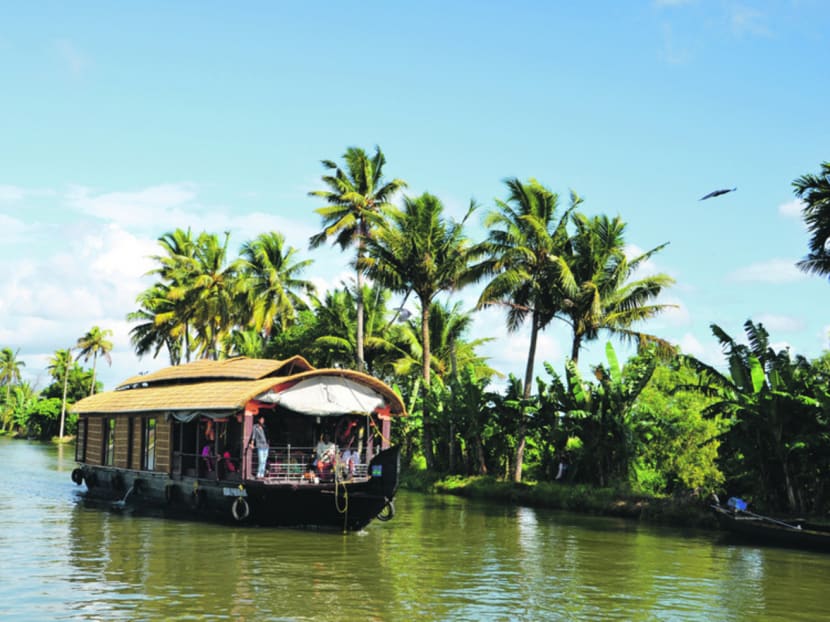
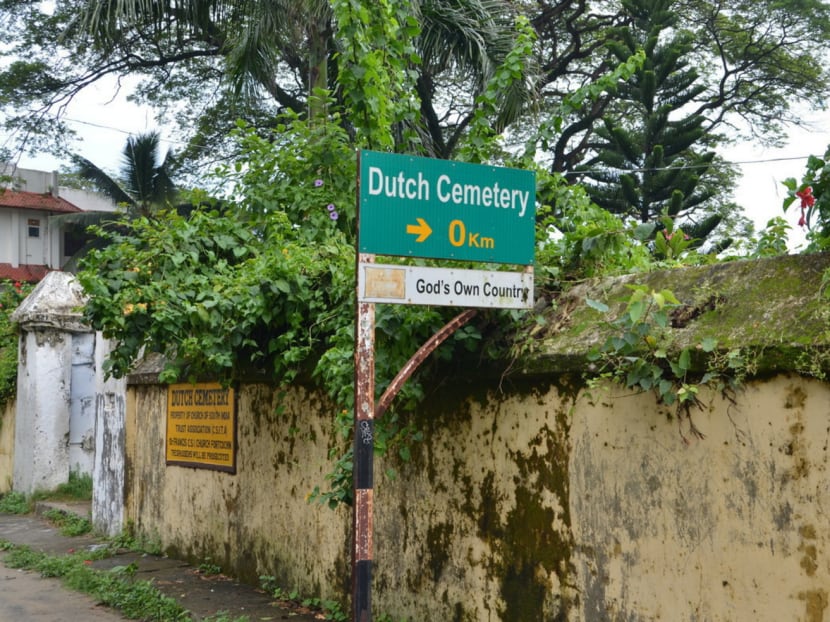
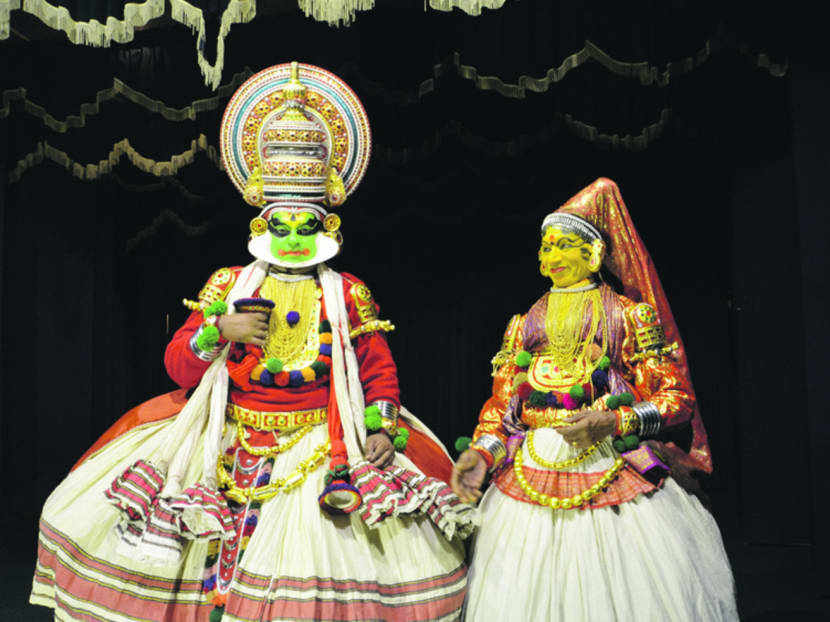
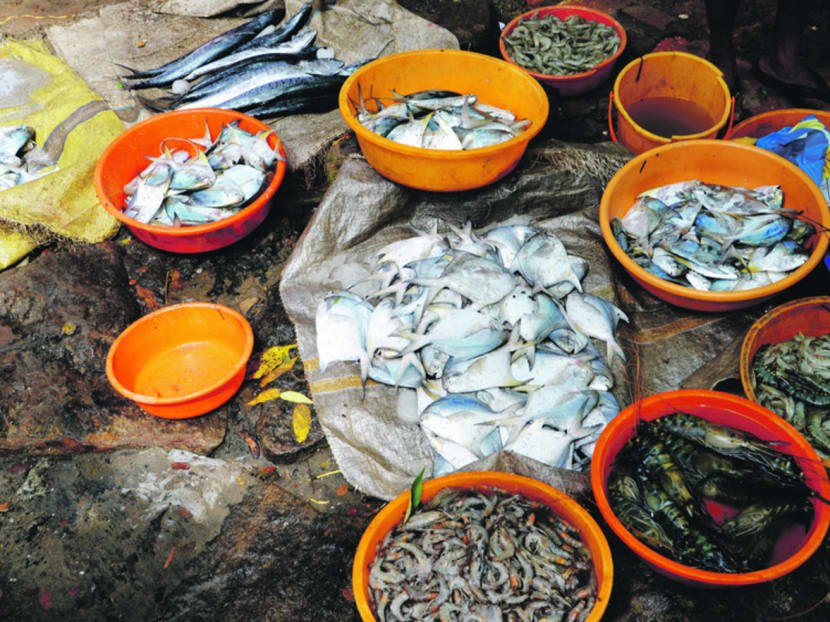
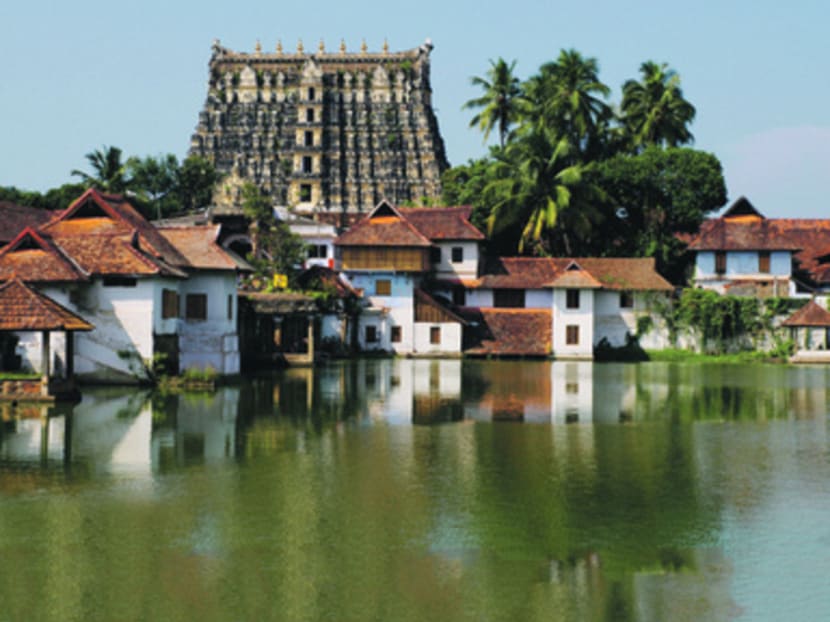
SINGAPORE — A rooster screeches its morning call. A few crows join in, and soon other chirping birds add melody to the mood as their shrill cries break the morning silence. The surrounding darkness slowly fades as the rising sun throws light onto the dark horizon of sleepy Kerala.
The first morning ferry honks its wake-up call and a gentle breeze carries the undulating voice from the muezzin of a nearby mosque, as the ringing of temple bells signals the start of yet another day in the backwaters of this Indian state.
Travellers who have experienced this morning symphony call it wondrous. Long renowned for its idyllic beauty, these backwaters are an integrated network of rivers, lakes, canals, estuaries and lagoons that thread through the length and breadth of Kerala, located in the southwestern tip India tucked between the Arabian Sea on the west (it has 600km of shoreline) and the Western Ghat Mountains to the east. It is in these emerald waters that farmers transport their produce, women wash their clothes, men fish for their livelihoods and children learn how to swim (sometimes even before they learn how to walk).
THE REAL KERALA
Kerala is unquestionably a dream destination. Backwaters aside, it charms with its old-fashioned settlements, unspoilt coastline, rolling hills and valleys, lush green coconut groves and a spiced perfumed air everywhere you go.
In ancient times, it was scent spices that lured merchant ships from as far away as Phoenicia, Egypt, Babylon, Assyria and China, all willing to brave the currents of the high seas just to land on Kerala’s shores.
They were followed by the Arabs and the Europeans — including the Portuguese, Dutch and British — all of whom marched in after Vasco da Gama established the route from Europe by sailing around Africa’s Cape Of Good Hope. These traders established a cultural melting pot in Kerala that differentiates the region from the rest of India.
Here, the air is fresh and the sky is blue. When travelling across the region, it’s amazing to observe how the placid beauty of the land has influenced the people’s lifestyle, which has remained slow and easy-going. The land seems to be blessed by the gods — and perhaps that’s why one of the nicknames of Kerala is “God’s own country”.
Different religions such as Hinduism, Islam, Christianity and Judaism coexist harmoniously here. These diverse faiths were introduced with the influx of traders, travellers and missionaries. The Paradesi Synagogue in Mattancherry, the Padmanabhaswamy Temple in the state capital, Thiruvananthapuram, the Santa Cruz Basilica in Kochi or the mosque in Munnar still have equal status in the society here.
Needless to say, there is a lot to do in Kerala in terms of sightseeing. You can take at look at what remains of the European and Chinese influence in Fort Kochi located in the municipality of Kochi, or wander through narrow streets of the old Jewish town of Mattancherry, visit the spice gardens at Thekkady or tea gardens at Munnar, or simply relax at the world-famous Kovalam beach after a traditional “Ayurvedic” treatment.
BOATING BLISS
As fascinating as those sights are, they can’t top the quintessential Kerala experience: A backwater cruise in a Kerala-style houseboat called “Kettuvallam”. Made of bamboo, cane, coir and wood, these beautiful vessels, which were earlier used to transport rice, have been refashioned into stylishly furnished floating cottages. Their exotic images brand tourism in Kerala. With Kerala’s more than 1,900km of waterways, obviously there are many coastal points to begin a voyage, but the two most popular are Alappuzha and Kollam, the latter eulogised by great travellers like Marco Polo and Ibn Battuta.
The cruise provides a unique opportunity to witness a pulsing synergy between nature and human life which hasn’t changed much. As the sun rose above the horizon, it was interesting to notice how life springs into action in this rural quarter. Canoes piled with fruits and vegetables or carrying office workers and schoolchildren crowd the waterways, while women washing dishes shyly turned away from curious eyes of visitors passing by. The aroma of wood fire and unnamed spices from the kitchen hearths drifted in the air.
As the day moved on, the wayside scenery changed: Children on their way to school stopped at times to scuffle with each other; farmers worked in the adjacent paddy fields with ox-driven ploughs while weary fishermen, whose faces are weathered by years of sun and surf, returned home with their catch.
The houseboats stopped at these points for visitors to buy some seafood, but more for an opportunity to mingle with the locals. Many of them can converse in English — Kerala has the highest literacy rates in India. Around noon, when the temperature soars, you can see entire families out splashing in the water to get respite from the heat. And it’s not just humans — there was even a buffalo half-submerged in the stream.
While a lazy silence filled the afternoon, the joie de vivre picked up again in the evening. With the sun slowly sinking into the horizon, people sat by the banks dangling their feet in water, while greeting travellers in passing houseboats with waves and mirth.
And as night crept in, the croaking frogs took up the chorus of the evening song. It was almost reminiscent of the morning chorus, when nature sounded its “alarm”. It was time to hit the sack.
Our houseboat dwellers retired to our bunks, recounting the encounters of the rewarding day. Tomorrow, another dawn summoned by Mother Nature awaited. And we could not wait for it to begin again.





